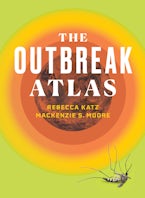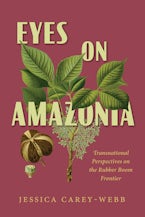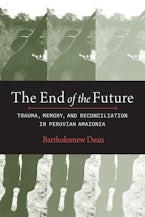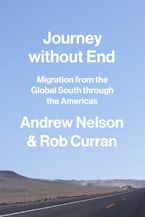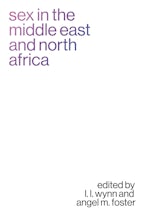- Home
- Flexible Families
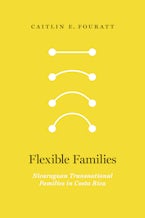
Flexible Families
Nicaraguan Transnational Families in Costa Rica
Flexible Families examines the struggles among Nicaraguan migrants in Costa Rica (and their families back in Nicaragua) to maintain a sense of family across borders. The book is based on more than twenty-four months of ethnographic fieldwork in Costa Rica and Nicaragua (between 2009 and 2012) and more than ten years of engagement with Nicaraguan migrant communities. Author Caitlin Fouratt finds that migration and family intersect as sites for triaging inequality, economic crisis, and a lack of state-provided social services.
The book situates transnational families in an analysis of the history of unstable family life in Nicaragua due to decades of war and economic crisis, rather than in the migration process itself, which is often blamed for family breakdown in public discourse. Fouratt argues that the kinds of family configurations often seen as problematic consequences of migration—specifically single mothers, absent fathers, and grandmother caregivers—represent flexible family configurations that have enabled Nicaraguan families to survive the chronic crises of the past decades. By examining the work that goes into forging and sustaining transnational kinship, the book argues for a rethinking of national belonging and discourses of solidarity.
In parallel, the book critically examines conditions in Costa Rica, especially the ways the instabilities and inequalities that have haunted the rest of the region have begun to take shape there, resulting in perceptions of increased crime rates and a declining quality of life. By linking this crisis of Costa Rican exceptionalism to recent immigration reform, the book also builds on scholarship about the production and experiences of immigrant exclusion. Flexible Families offers insight into the impacts of increasingly restrictive immigration policies in the everyday lives of transnational families within the developing world.
The book situates transnational families in an analysis of the history of unstable family life in Nicaragua due to decades of war and economic crisis, rather than in the migration process itself, which is often blamed for family breakdown in public discourse. Fouratt argues that the kinds of family configurations often seen as problematic consequences of migration—specifically single mothers, absent fathers, and grandmother caregivers—represent flexible family configurations that have enabled Nicaraguan families to survive the chronic crises of the past decades. By examining the work that goes into forging and sustaining transnational kinship, the book argues for a rethinking of national belonging and discourses of solidarity.
In parallel, the book critically examines conditions in Costa Rica, especially the ways the instabilities and inequalities that have haunted the rest of the region have begun to take shape there, resulting in perceptions of increased crime rates and a declining quality of life. By linking this crisis of Costa Rican exceptionalism to recent immigration reform, the book also builds on scholarship about the production and experiences of immigrant exclusion. Flexible Families offers insight into the impacts of increasingly restrictive immigration policies in the everyday lives of transnational families within the developing world.
Introduction: "The Family Is a Little Society"
Chapter 1: State, Family, and Solidarity in the Nicaraguan Nation
Chapter 2: Locked Up and Waiting
Chapter 3: Single Mothers and Absent Fathers
Chapter 4: Reconfiguring Relationships across Borders
Chapter 5: Mamitas: Grandmother Caregivers and Extended Family Households
Chapter 6: "I Eat All My Money Here": Remittances in Transnational Family Life
Chapter 7: Returns and Reunions
References
Index
Chapter 1: State, Family, and Solidarity in the Nicaraguan Nation
Chapter 2: Locked Up and Waiting
Chapter 3: Single Mothers and Absent Fathers
Chapter 4: Reconfiguring Relationships across Borders
Chapter 5: Mamitas: Grandmother Caregivers and Extended Family Households
Chapter 6: "I Eat All My Money Here": Remittances in Transnational Family Life
Chapter 7: Returns and Reunions
References
Index
Caitlin E. Fouratt is an associate professor in the Department of International Studies at California State University, Long Beach.
"This book is a fantastic addition to the international migration scholarship. It is accessible and easy to read, engaging, yet theoretically nuanced and methodologically sound. The journeys through which [Fouratt] takes the reader—across countries, levels of analysis, and time—give a sense of the movement in time and space of Nicaraguan migrant families."
—Leila Rodriguez, editor of Culture as Judicial Evidence: Expert Testimony in Latin America
"Fouratt's insights on the importance of flexibility in working-class Nicaraguan families are a critical contribution to our understandings of migration and kinship."
—Ruth Gomberg-Muñoz, author of Labor and Legality: An Ethnography of a Mexican Immigrant Network

